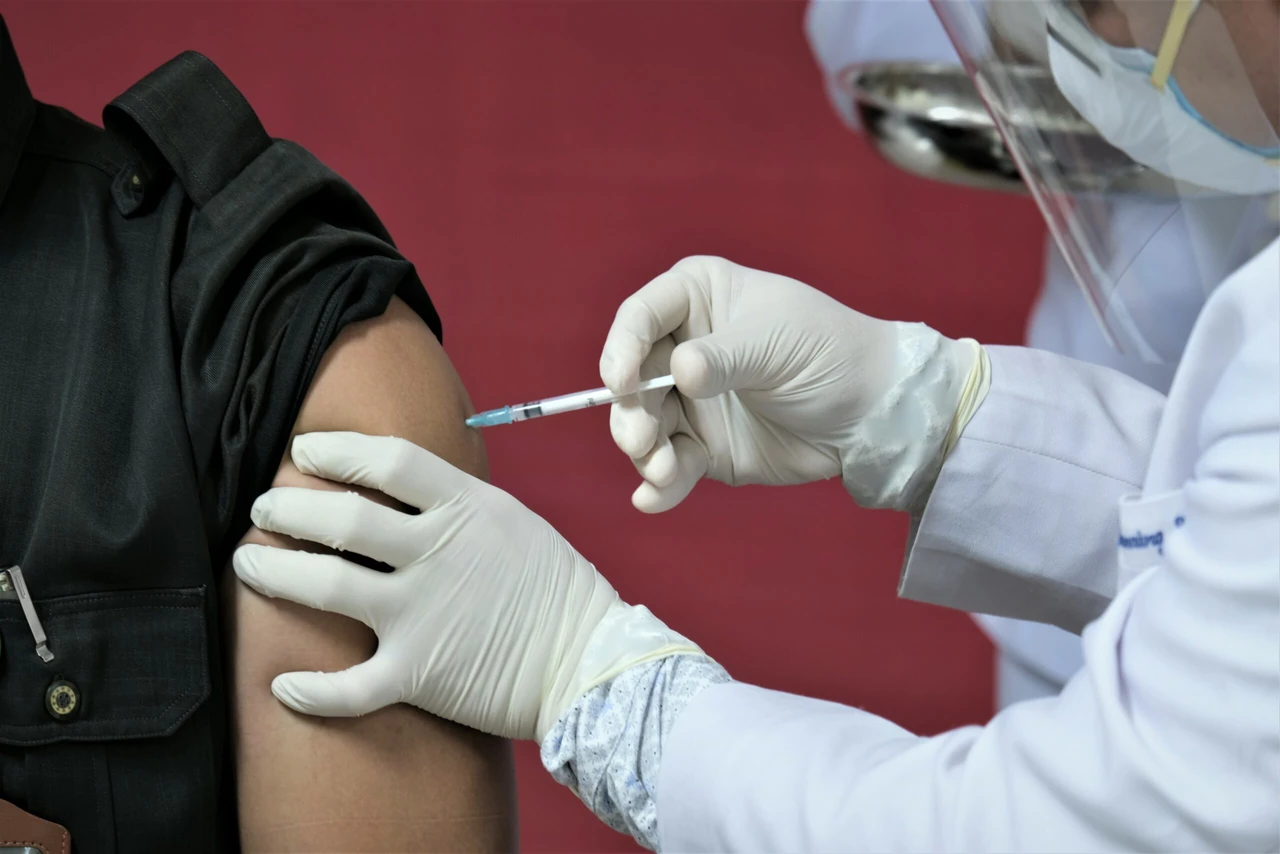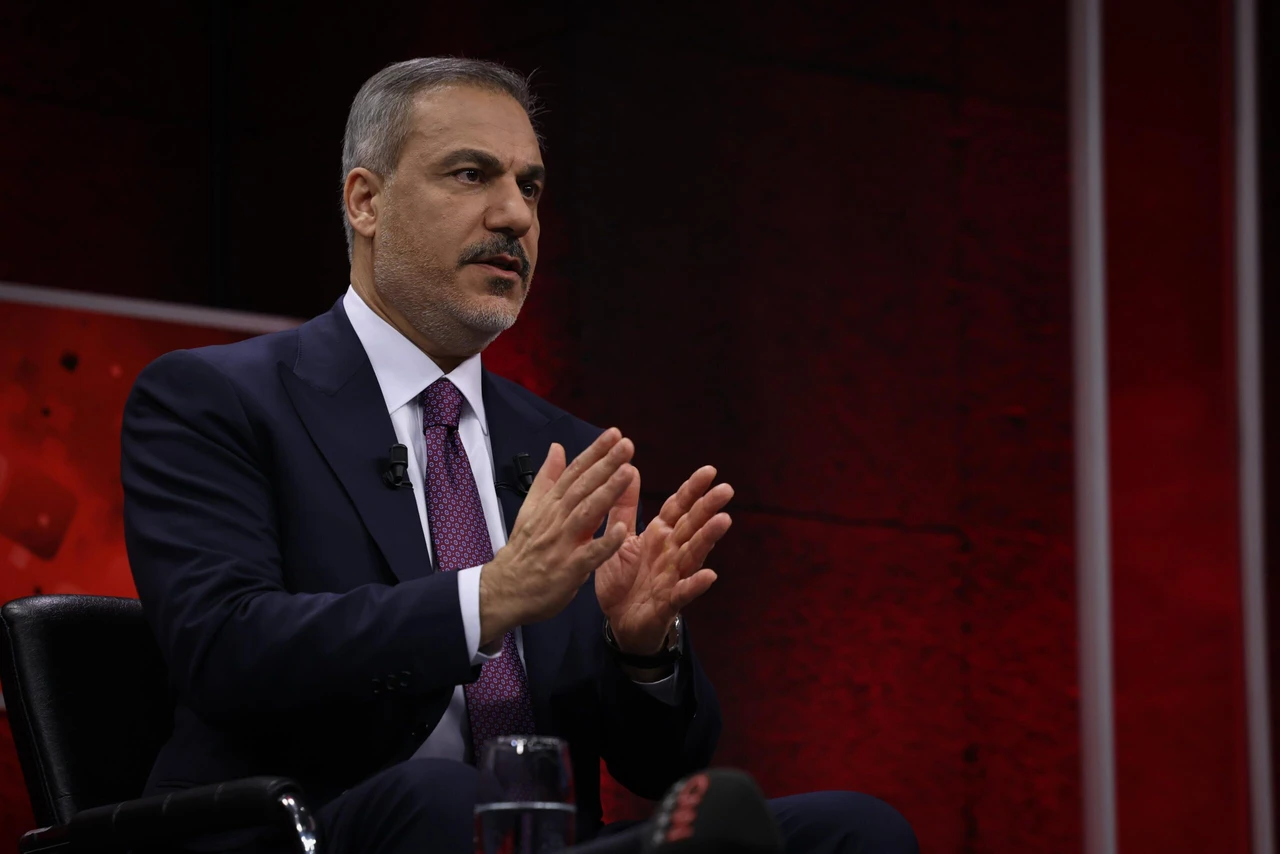Global vaccine trust declines, Türkiye sees surge in unvaccinated children
 Medical personnel inject a vaccine into a person's arm. (Adobe Stock Photo)
Medical personnel inject a vaccine into a person's arm. (Adobe Stock Photo)
Vaccine hesitancy has become a growing issue worldwide, exacerbated by the COVID-19 pandemic. This trend has not only affected the acceptance of COVID-19 vaccines but has also led to a decline in vaccinations for childhood diseases such as diphtheria, whooping cough, chickenpox, and mumps.
In Türkiye, the number of children who have not received any vaccines has surged from 183 in 2011 to nearly 100,000 in 2024. This decline has contributed to a resurgence of diseases that were once close to being eradicated, such as measles.
Measles cases at 25-year high in Europe and Central Asia
According to a joint report published on March 13 by the World Health Organization (WHO) and UNICEF, measles cases in Europe and Central Asia have reached their highest levels in the past 25 years. In Türkiye, the number of reported measles cases is also rising, with the country ranking ninth in Europe in terms of the number of cases, at 1,523 in 2024.
Experts have noted that this is a direct result of the increasing number of children who are not receiving routine vaccinations. In fact, vaccine coverage rates for measles have been steady at around 95% in recent years, yet a significant portion of unvaccinated children is not reflected in official statistics due to parental objections.
Growing concern: Vaccine hesitancy in Türkiye
According to data compiled by the Medical Association of Türkiye (TTB) from the Ministry of Health, the number of parents refusing to vaccinate their children has steadily risen in Türkiye, with the number of unvaccinated children increasing from 1,370 in 2014 to nearly 100,000 by 2024.
Experts speaking to BBC Turkish assert that vaccine opposition in Türkiye became significantly pronounced after 2015. This shift is attributed to a Constitutional Court decision that year, which linked parental consent to the administration of vaccines.
A shift in public perception: 2015 Constitutional Court decision
The Constitutional Court ruling in 2015, which stated that administering vaccines without parental consent violated the constitution, is considered a major turning point in Türkiye’s vaccine hesitancy. This legal change has contributed to a noticeable increase in the number of parents opting out of childhood vaccinations, placing public health at risk.
Dr. Sezer Okay from the Hacettepe University Vaccine Institute notes that the refusal rate for childhood vaccinations spiked significantly following the 2015 ruling. This trend poses a significant public health threat, as it increases the risk of outbreaks of preventable diseases.

COVID-19 and vaccine hesitancy: A complex relationship
The COVID-19 pandemic added another layer of complexity to vaccine hesitancy. While the pandemic underscored the importance of vaccinations, it also sparked debates and fueled resistance, particularly due to the rapid development of COVID-19 vaccines.
These events led to heightened skepticism about vaccine safety, as some individuals questioned the speed of vaccine development and their potential risks.
Public protests and the rise of anti-vaccine sentiment
In 2021, anti-vaccine protests gained momentum in Türkiye, particularly in cities like Istanbul. Protestors carried banners such as “No vaccine, no tears,” signaling a growing mistrust of immunization campaigns.
According to the TTB, the number of vaccine-refusing families has continued to grow, and the incidence of previously rare infectious diseases like measles and whooping cough has also risen.
Measles: A resurgence in Türkiye
Despite official reports showing a stable vaccination rate of 95% for measles in Türkiye, the number of reported cases remains concerning. The TTB argues that children not vaccinated due to parental objections are often excluded from the official statistics, leading to an underestimation of the true extent of the problem.
While Türkiye has not reported any measles-related deaths since 2005, experts warn that the risk of complications from measles, such as secondary infections, remains a serious concern.
Shifting attitudes toward vaccination: A demographic divide
Experts emphasize that vaccine hesitancy varies among different demographic groups in Türkiye. The TTB highlights that older adults, people with chronic illnesses, and those with higher education levels are more likely to accept vaccinations, while younger and healthier individuals tend to refuse vaccines at higher rates.
Dr. Sezer Okay explains that political ideologies also play a role in vaccine acceptance. In regions where right-wing and populist movements are strong, vaccine opposition is more pronounced. Furthermore, trust in government and health authorities, as well as the prevalence of misinformation on social media, are key factors influencing vaccine reluctance.



